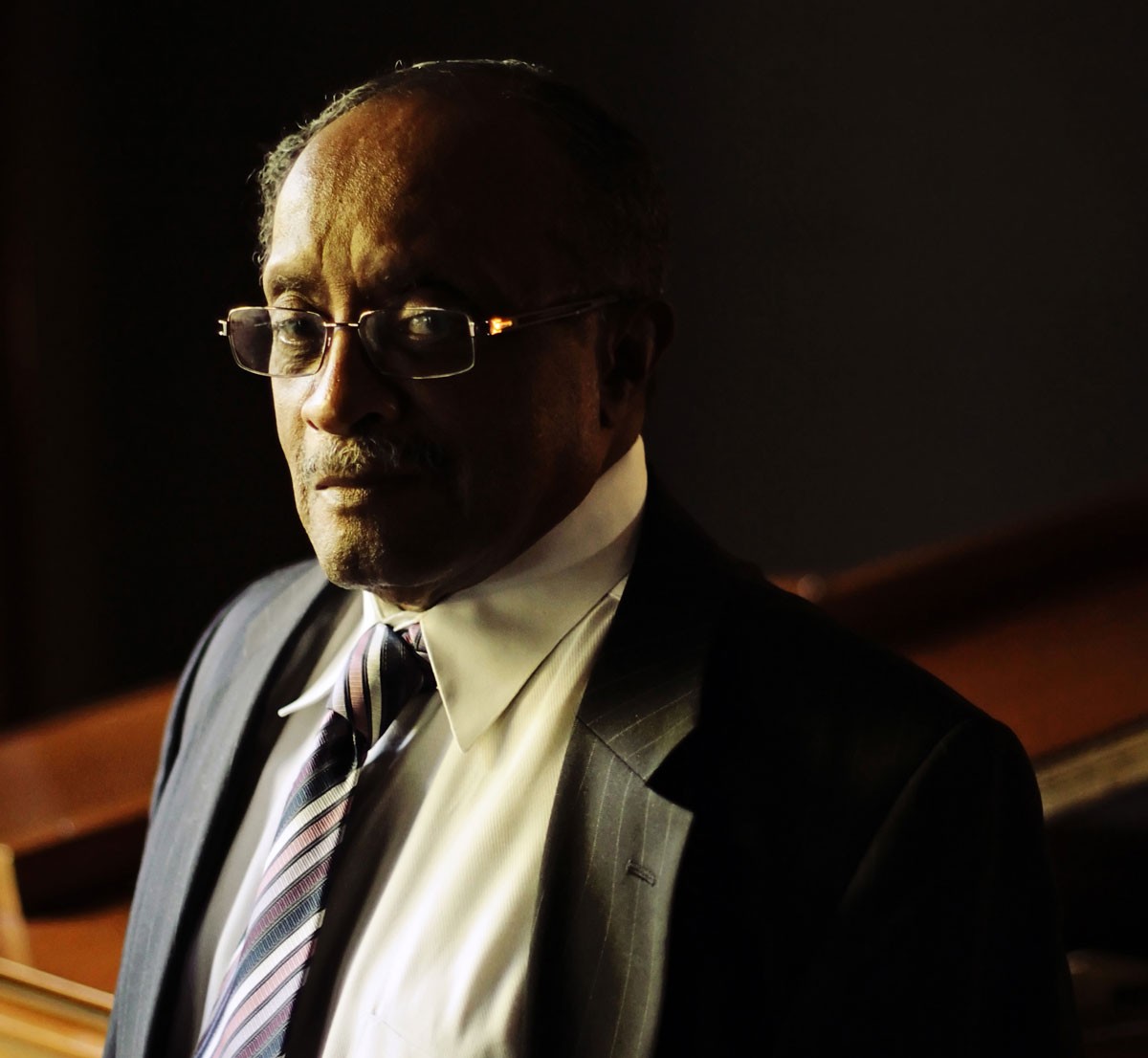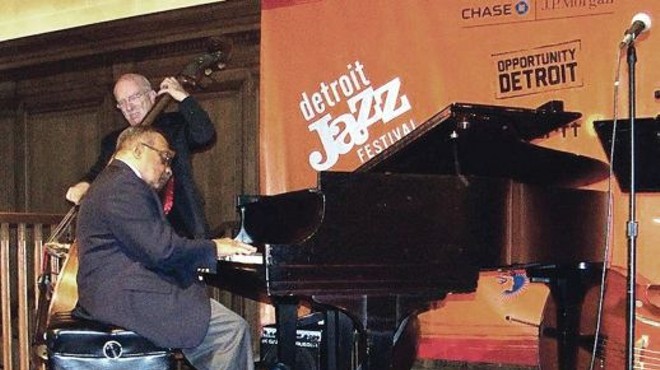Charles Boles, one of the last remaining pianists from Detroit’s bebop era who also mastered the blues, R&B, boogie-woogie, and straight-ahead jazz, died January 19. A family member confirmed his death to Metro Times. He was 91.
As a musician still performing a regular gig well into his 80s, Boles didn’t allow his advanced age to hinder him from swinging through his best life as a musician. He maintained a weekly Tuesday night residency at the swanky Dirty Dog Jazz Cafe for six years (2012-2018) and recorded his debut album at the ripe age of 81.
Boles always brought an ebullient degree of spontaneity to his playing, having been influenced by pianists such as Art Tatum, McCoy Tyner, and fellow Detroiter Barry Harris.
For those who knew Boles, he was sweet, soft-spoken, yet fiery at times, and could spit out hundreds of stories about Detroit’s music history and a plethora of high-profile musicians he toured with such as Marvin Gaye, Etta James, Mary Wells, Lou Rawls, and Dinah Washington.
One of his most engaging recollections was working with Aretha Franklin before she was anointed Queen of Soul. “I was with Aretha when she didn’t have no money,” Boles told journalist Jim McFarlin in a 2014 profile in Hour Detroit magazine. “I played for her, and she paid me, but she was borrowing back 20 bucks from me here and there every week because she was short of money. I’m telling you, we were riding around in cars with Canned Heat on the floor, trying to stay warm! Seems like I always got with the stars at the wrong time, when they were either on their way up or on their way down.”
Another gem that Boles shared with McFarlin was his stint with blues legend B.B. King, whom Boles recorded with and toured nationally and internationally in 1969 for King’s “Live and Well” tour.
“I didn’t see him until the late ’60s when I heard he was at the 20 Grand holding auditions for an organ player,” he said. “I was probably the world’s worst organ player, but I went there to see him. When he saw me, he said, ‘Who are you?’ And when I reminded him, he said, ‘I want this guy because he can play the blues in any key.’ B.B. was the kind of guy who’d start a song, but he had a bad throat so often he would have to change keys on the fly. That’s how I got the job.”
Charles Boles was born on June 8, 1932, in Detroit’s Black Bottom neighborhood. He lived in an orphanage until the Boles family adopted him at age four. His adoptive mother was the cousin of the famous stride pianist Fats Waller, who encouraged her to get the young Boles piano lessons. Waller used to visit the Boles family home and play piano when he was in town.
Boles attended Northern High School in the 1940s and learned the meat and bones of his craft by attending jam sessions at the house of bebop pianist Barry Harris. Harris’s jam sessions were legendary and a core part of development for many up-and-coming jazz musicians, like trumpeter Donald Byrd, pianists Roland Hanna and Tommy Flanagan, bassist Paul Chambers, and saxophonists Charles McPherson, Donald Walden, and Yusef Lateef.
Boles’s first gig out of high school was touring with guitarist and vocalist Emitt Slay, who he says snatched him up the day after he graduated high school. Like many musicians, Boles took on diverse gigs while carving out a name for himself, performing regularly at clubs on Hastings Street (sort of a red-light district in the ’50s) and Paradise Valley, a famous entertainment district in the city.
In the early ’60s, Boles moved to New York for a year, encouraged by his childhood friends Harris and Flanagan, but decided to return to Detroit for steady work that allowed for a more family-focused life.
Boles replaced pianist Claude Black in Aretha Franklin’s Trio in 1964. He also played for more than a year at Detroit’s Playboy Club, which provided a lot of work for local jazz musicians. In the ’70s, Boles became the conductor for the famed comedian Jackie “Moms” Mabley.
Outside his many gigs, Boles was a longtime educator at various schools, including his high school alma mater and Oakland University, where he taught piano technique, improvisation, music theory, and composition.
In his later years, Boles remained active in the Detroit jazz scene. Gretchen Carhartt-Valade, owner of Mack Avenue Records, the Detroit Music Factory, and the Dirty Dog Jazz Cafe, hired Boles to replace guitarist Johnnie Bassett in his weekly residency at the Dirty Dog. So inspired by his playing and the attention he drew to the residency, Valade signed Boles to the Detroit Music Factory, a label she formed to promote the music of Detroit-based jazz musicians. Boles recorded the well-received Blue Continuum in 2013.
Darrell Garrett, Mac Avenue’s manager of A&R and catalog and the director of the Detroit Music Factory, recalls working with Boles on the project. “He was a joy to work with,” Garrett says. “I loved how he cared for the craft of being a pianist. Another selfless thing about this man was that guitarist Ron English from the area is featured on this record, and he was adamant that Ron English’s name was also on the cover. Even in his first record at 81, he wanted to be sure that someone else had credit.”
Boles is preceded in death by his wife Helen and is survived by his seven children, and hosts of grandchildren and great-grandchildren.
Boles’s final arrangements will take place at New Greater Zion Hill Church located at 18891 St. Louis St in Detroit on Friday, Feb. 2, and Saturday, Feb. 3. Public viewing hours are from 4-5 p.m. on Friday, Feb. 2 with a memorial service to follow 5-7 p.m. On Saturday, Feb. 3, family hour is from 10:30-11 a.m. with service at 11 a.m.
Subscribe to Metro Times newsletters.
Follow us: Google News | NewsBreak | Reddit | Instagram | Facebook | Twitter








